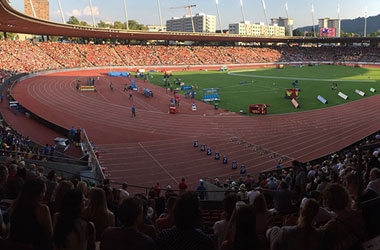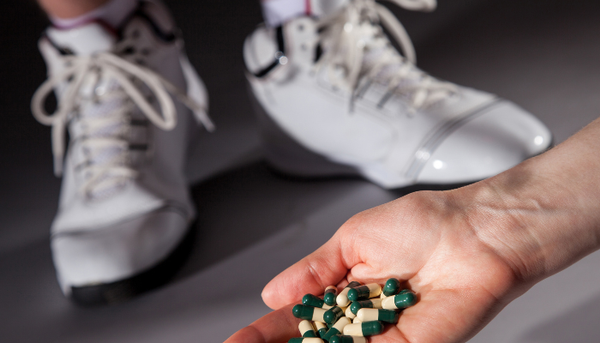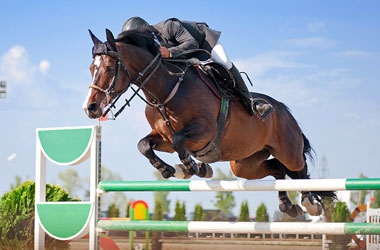An anti-doping rule violation can turn your world upside down. To protect your future and ensure you can continue to compete in the sport you love, turn to Global Sports Advocates. Our international anti-doping rule violation lawyers are zealous advocates for professional, collegiate, and Olympic athletes.
Here, we share six things all athletes need to know about anti-doping rule violations. If you’d like to discuss your next steps, contact us today.
Most, But Not All, Sports Follow WADA Rules
 Most international sports federations and many national sports organizations adhere to the World Anti-Doping Agency (WADA) rules since compliance with the World Anti-Doping Code is a requirement for participation in major competitions like the Olympics. However, there are some sports and leagues, particularly at the professional level or in specific regions, that do not strictly follow WADA doping rules.
Most international sports federations and many national sports organizations adhere to the World Anti-Doping Agency (WADA) rules since compliance with the World Anti-Doping Code is a requirement for participation in major competitions like the Olympics. However, there are some sports and leagues, particularly at the professional level or in specific regions, that do not strictly follow WADA doping rules.
For example, the National Football League (NFL), Major League Baseball (MLB), National Basketball Association (NBA), and National Hockey League (NHL) have their own anti-doping policies. This means they may have different lists of prohibited substances, testing protocols, and penalties for violations. For example, the NBA removed marijuana from its list of banned substances as part of the Collective Bargaining Agreement that took effect on July 1, 2023.
As an athlete, it is your responsibility to familiarize yourself with the relevant anti-doping rules and take all appropriate steps to ensure you remain in compliance.
Anti-Doping Rules Cover Both Banned Substances and Banned Methods
 Sports fans often think of doping in terms of banned substances, but anti-doping rule violations can include banned methods as well.
Sports fans often think of doping in terms of banned substances, but anti-doping rule violations can include banned methods as well.
For example, WADA prohibits these categories of banned substances:
- Anabolic agents. This includes anabolic androgenic steroids (AAS) and other agents that mimic the effects of testosterone to promote muscle growth and strength. SARMs (selective androgen receptor modulators) are considered “other anabolic agents” under WADA rules.
- Peptide hormones, growth factors, related substances, and mimetics. This category includes substances like erythropoietin (EPO), human growth hormone (HGH), and other agents that stimulate growth, red blood cell production, or recovery.
- Beta-2 agonists. Used medically for asthma, beta-2 agonists can increase muscle mass and reduce body fat.
- Hormone and metabolic modulators. These substances affect how the body processes hormones and metabolizes energy, including aromatase inhibitors and insulin.
- Diuretics and masking agents. These are used to increase urine production or alter urine tests to hide the presence of banned substances.
- Stimulants. This category includes substances like amphetamines and cocaine, which can increase alertness and reduce fatigue.
- Narcotics. Narcotic painkillers can mask the pain of injury, potentially allowing athletes to perform when they otherwise couldn't.
- Cannabinoids. This class includes marijuana and hashish, which are prohibited in competition due to their potential to impair performance.
- Glucocorticoids. Steroids that have anti-inflammatory and immunosuppressive properties, but can also increase endurance and pain tolerance.
- Beta-blockers. These are banned in specific sports due to their effects on tremor reduction and calming nerves.
In addition to these substance classes, WADA also prohibits the following methods:
- Manipulation of blood and blood components. These interfere with the oxygen-carrying capacity of blood, including transfusions and the use of certain products like HBOCs (Hemoglobin Based Oxygen Carriers).
- Chemical and physical manipulation. Interfering with doping control processes, such as tampering with samples or using IV infusions to reduce the concentration of drug metabolites in the urine and make it harder to detect banned substances, is prohibited.
- Gene doping. Anti-doping rules prohibit the transfer of polymers of nucleic acids or nucleic acid analogs, gene editing, and cell manipulation for the purpose of enhancing athletic performance.
Violations Can Occur as a Result of Contamination
 Anti-doping rules ban specific substances and methods, but athletes often underestimate the risk of violation occurring via contamination. For example, Global Sports Advocates cleared American long jumper Jarrion Lawson of wrongdoing after he ate a beef bowl the day before his positive test for trenbolone that led to the first ever case of meat contamination at the Court of Arbitration for Sport. GSA also reduced the suspension of Bosnia and Herzegovinian swimmer Jovan Lekić by proving he consumed higenamine via a contaminated dietary supplement.
Anti-doping rules ban specific substances and methods, but athletes often underestimate the risk of violation occurring via contamination. For example, Global Sports Advocates cleared American long jumper Jarrion Lawson of wrongdoing after he ate a beef bowl the day before his positive test for trenbolone that led to the first ever case of meat contamination at the Court of Arbitration for Sport. GSA also reduced the suspension of Bosnia and Herzegovinian swimmer Jovan Lekić by proving he consumed higenamine via a contaminated dietary supplement.
Strict Testing Procedures Must Be Followed
Even though the methods used to test samples continue to improve, there is always the possibility of a false positive due to errors at the lab or mishandling of an athlete’s sample. B sample testing is one way athletes have a chance to clear their names.
When an athlete’s samples are collected for drug testing, they are placed in two different containers. The A sample is used to perform the initial test. If the A sample returns a positive result, the B sample can then be tested to check the accuracy of the results.
B sample testing plays a crucial role in the cases of many athletes Global Sports Advocates works with. For example, Australian runner Peter Bol, had his provisional suspension lifted by Sport Integrity Australia after his B sample test results did not confirm the A sample's findings.
Whereabouts Failures Can Lead to a Violation Without a Positive Test Result
Anti-doping programs promote clean sport by requiring that athletes make themselves available for random drug testing. If you miss a test or provide inaccurate information about when you will be available for testing, this is considered a whereabouts failure. Under Article 2.4 of the World Anti-Doping Code, any combination of three missed tests or filing failures in a 12-month period will result in an anti-doping rule violation with a minimum sanction of 12 months. CrossFit’s rules are even stricter, since a single missed test or filing failure will be considered a violation of the CrossFit Drug Testing Program (CFDTP).
To avoid whereabouts failures, we recommend that athletes sign up for automated reminders, plan for the possibility of technical difficulties, and keep their phone GPS turned on at all times. If an athlete receives an initial notice of a filing failure or missed test, they are entitled to provide the anti-doping results management authority with an explanation and to request an administrative review. Our international anti-doping lawyers can assist with this process.
You Have the Right to an Appeal
If you are facing an anti-doping rule violation, you need help from an experienced sports lawyer. At Global Sports Advocates, we can handle every step of the appeals process, including appeals to the Court of Arbitration for Sport. We’ve represented athletes facing suspensions and forfeiture of prize money for more than a decade and use our in-depth knowledge of the World Anti-Doping Code and the science behind drug testing procedures to advocate on behalf of our clients.
Are You an Athlete Who Has Been Accused of an Anti-Doping Rule Violation?
If you have been accused of violating anti-doping rules, please contact our International anti-doping attorneys by clicking the button below or by calling us directly at +1-207-747-5899 to schedule a consultation with one of our international anti-doping lawyers.
When it comes to anti-doping rule violations, you simply can't afford to take any chances. Not only are your career and reputation at stake—so are your lifelong dreams. Our firm is devoted to sports law and has represented athletes from over 60 countries spanning nearly every sports category. Let experienced anti-doping attorney Paul Greene help you protect your ability to compete in the sport you love.



